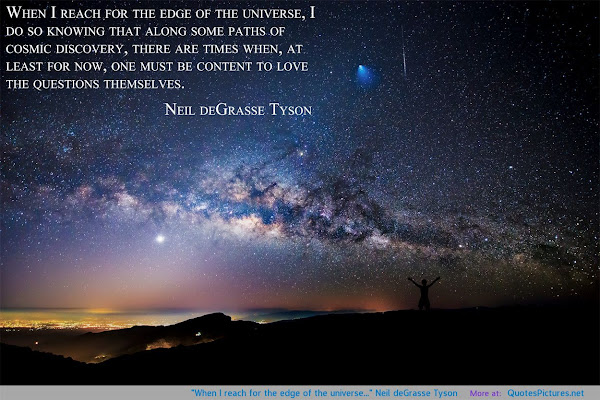2. ON NASA'S FINANCIAL SUPPORT "What is the entire cost of all spaceborne telescopes, planetary probes, Mars rovers, the International Space Station, the space shuttle, telescopes still to orbit, and missions yet to fly, using a fraction of today's tax dollars?' Answer:.05% of each tax dollar. A half-penny. I would want a higher rate: maybe two cents on the dollar. Even during the illustrious Apollo period, NASA funding peaked at less than four cents on the dollar."
Whereas with science, you cannot just make something up and assume it is a correct description of nature. Finally, you must respond to nature. Due to the fact that everyone is accountable to nature, your creativity is only learning something about the natural world that someone else would have learned in the identical same manner. They may have arrived through a different route, but they would have ended up at the same location. Even if we call theorems and equations after the discoverers â Newton's laws of gravity, Kepler's rules of planetary motion â another person would have found them later. That is all. Your imagination is not limitless.
44. âIf the gridiron were a chronology, with the Big Bang at one end, cavemen would span the thickness of a single turf-blade at the other.â
45. âSo you're composed entirely of garbage [from burst stars]. Put it behind you. Or, even better, to celebrate it. After all, what more noble concept can one appreciate than the knowledge that the cosmos is inside each of us?â
âI am motivated by two primary philosophies: the desire to learn more about the world today than I did yesterday and the desire to alleviate the pain of others. You'd be astonished at how far that goes.â – astronomer Neil deGrasse Tyson Neil deGrasse Tyson grew fascinated with astronomy after witnessing the sky on a visit to Pennsylvania. He was just nine years old at the time. Ultimately, this incident catapulted him to prominence as a world-renowned astronomer.










